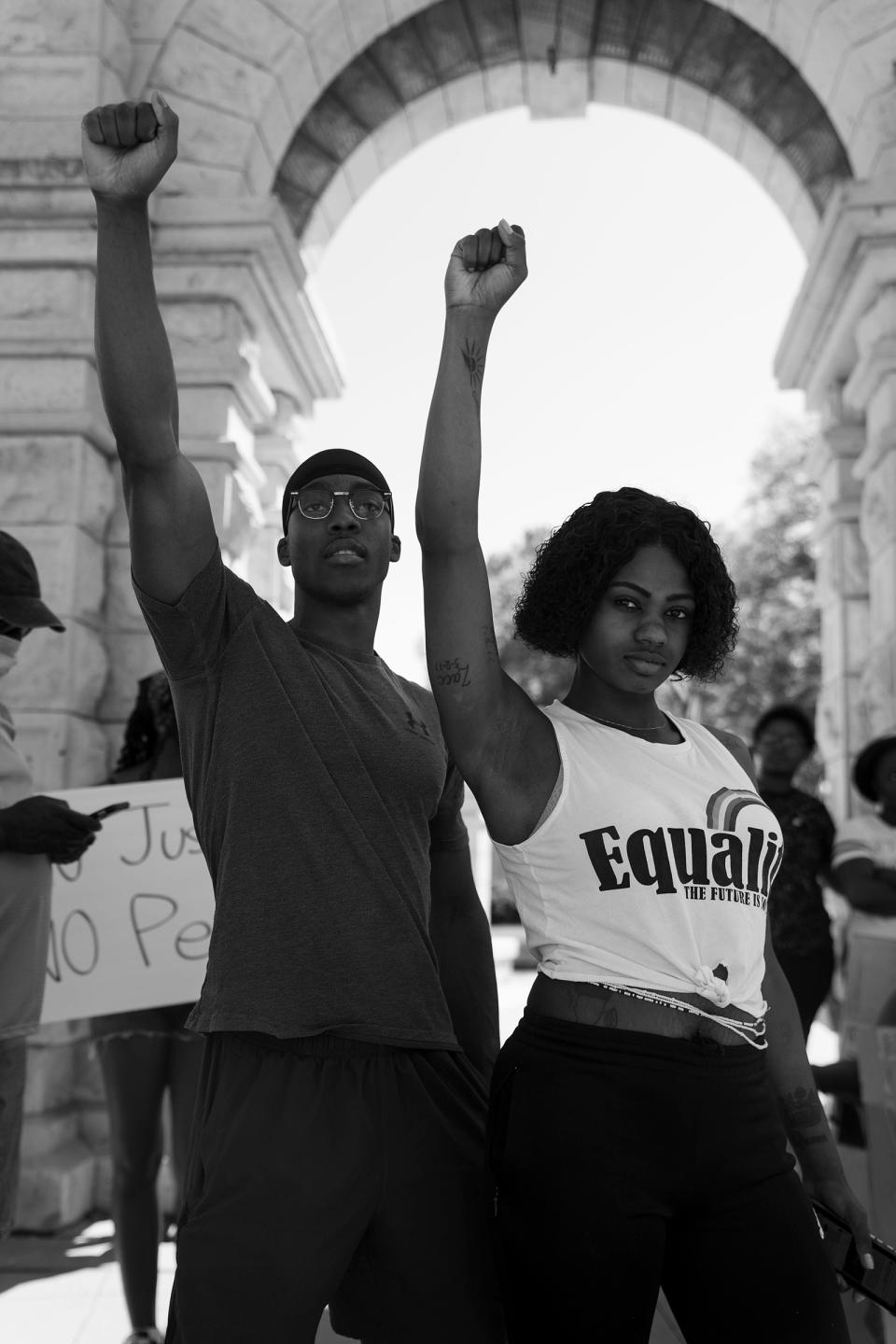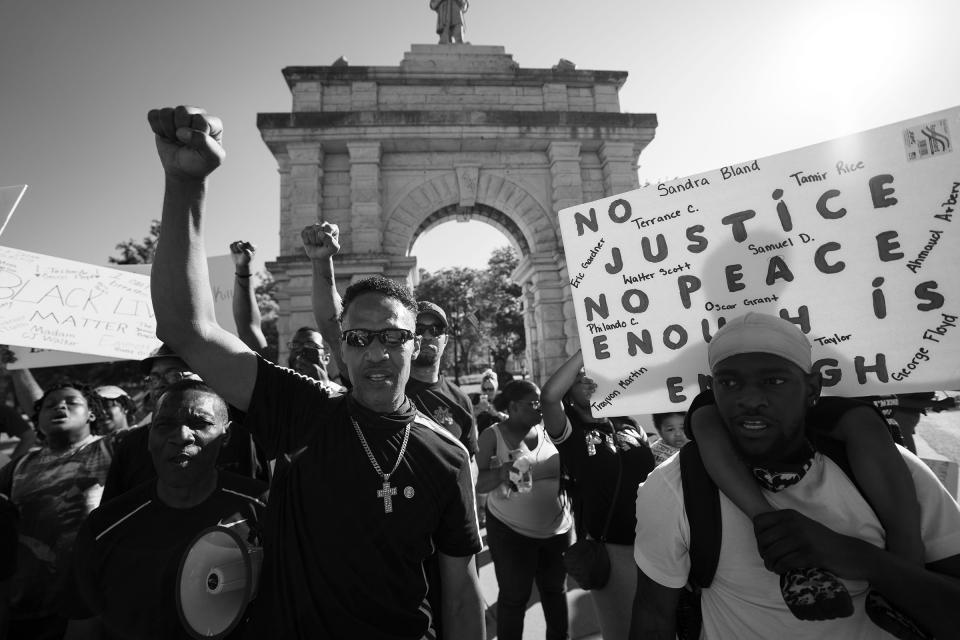I’m a Black American Vet and a Former Police Officer. I Decided to Speak Up With My Camera
Doug Barrett, 37, is a photographer, Army Veteran and former police officer from Atlanta who moved to Kansas in 2011.
I was a former police officer in Gwinett County, Ga., working in SWAT and narcotics. So, part of why I feel comfortable shooting photographs and getting into the thick of things is because I understand the law enforcement perspective. I understand being a black American with a camera in my hand.

I made a Facebook post last Thursday about my experiences to share with people in Manhattan, Kans., because so many people have been reaching out to me that I know in the community. They want to understand what is it that African Americans go through. What is it that they’re missing? How can we help come together and unite?
In the post I wrote:
So here it goes …
undefined
I’ve shared my personal experiences of what that looks like so that people aren’t just thinking that all cops are bad.
I was a police officer till 2011 and switched careers and joined the Army. When I came out west, and was stationed at 1st Infantry Division, in Ft. Riley, Kans.
I suffered some injuries while active-duty and took a medical retirement. Went through three surgeries to fix my back and lower extemeties. Being older, I said, you know what? I’ll take my chances being a civilian again.
After my service, I started my own company because I’d been taking images since my mom and dad gave me my first camera. I tried to find my space in the photo community, and I was determined to work on a veteran project. The documentary work, being a veteran, sharing the stories of homeless veterans in black-and-white portraits is where I find my heart.
I’m not 100%. I’m a disabled veteran. I don’t make any excuses, and I try to do the best I can each day, which is how that homeless veteran project started. I think I’ve gone to 17 states and taken black-and-white portraits of 75 homeless veterans in total. You can see them on my Instagram.
I went to photograph a protest last Friday. The two most impactful things that hit me the hardest were an image of an older African American female. She said, “I’m in my 60s, and I’m still having to protest.” I captured an image of her holding the another man’s hand.

Then I saw that I had photos of so many kids. And I remembered one of the ladies telling me she has an 8-year-old son, and she says, “My son, this is his second protest.” Because his first one was when Trayvon Martin was killed in 2012. I was like, wow, how heavy is that?
At the protest we counted about 105 people. The protest was staged by local leaders within the black community. As cars passed, people honked. People cheered, waved. They protested right there on the corner. Peacefully. No law enforcement.

They did march to the Geary County Sheriff’s Office. Two of the police officers were out there. People chanted and, voiced their concerns.
The officers smiled. They didn’t do anything reactionary to the protesters. And then the march continued back to its original point at Heritage Park.
I was with two other photographers and I decided rather than get in their space, I was going to go on the sidewalk. I saw a pop of light where I wanted to capture images. So, I started shooting and Jason Simmons with his siblings and his mom came right through that patch of light.
Two days later, I was culling through images, I was posting what I felt most of the people wanted to see. But then I was kind of reflecting. As a parent, I couldn’t even imagine taking my kid to a protest. Obviously, I’m shooting. Then again, people are taking their kids out there to see this, the experience.
I’m a contributor to @everydayblackamerica on Instagram. So just prior to going shooting this, they had asked me to start putting work out there to them. And they put the image on their page, and that’s pretty much the history on it.
Later on, the kid’s mother responded. Because somebody tagged her and said look at your babies in the picture. And her response was, “My heart just stopped. Oh, my God, this is powerful.”
When I see this photo of Jason, I think we just need to stop the hate. If we stop the hate, then we can make progress on how we fix these issues from the local level.
It’s about stopping the hate and educating, to get people to understand that this does happen. It is an ongoing issue and we just want to fix it. Nobody’s asking for anything. We just want to live.


